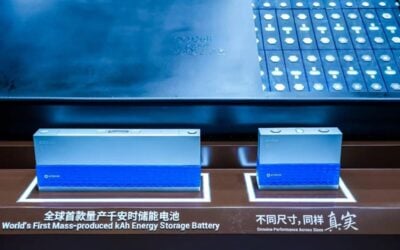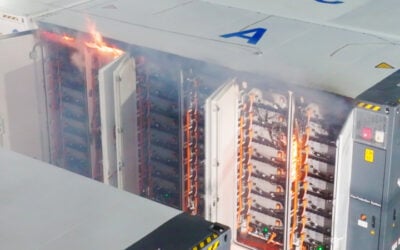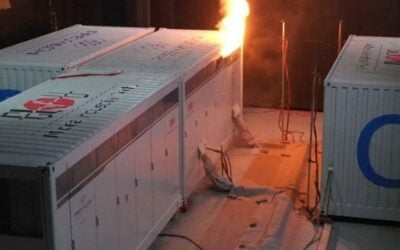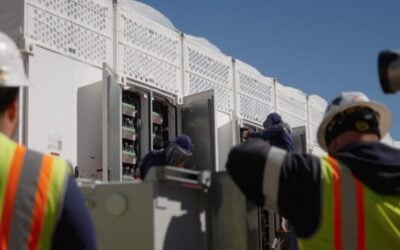TÜV SÜD has developed a certificate for renewable energy storage systems (RESS), which the testing house claims will “provide reliable information on the safety, performance and service life of stationary energy storage systems”.
Industry figures, academics and even politicians have called for standardisation across energy storage markets with increasing frequency. At a UK event in April, Nicola Cosciani of Italian battery maker FIAMM, which has added grid storage to its range of products, said that companies would find developing global strategies for tackling the energy storage market difficult without being able to adapt to the local needs of each region they wish to be active in.
Enjoy 12 months of exclusive analysis
- Regular insight and analysis of the industry’s biggest developments
- In-depth interviews with the industry’s leading figures
- Annual digital subscription to the PV Tech Power journal
- Discounts on Solar Media’s portfolio of events, in-person and virtual
According to Cosciani, a global energy storage industry would need standardisation and regulation of technologies to be successful, a view echoed by other speakers at the event, including the president of EMEA strategic business unit at energy provider AES.
Similarly, Stefan Lux, head of the battery module and system team at technological research institute Fraunhofer ISE said in a conversation with PV Tech Storage in June that both businesses and consumers would benefit greatly from standardisation of products. From a commercial perspective, he said it would help consumers decide which battery systems to purchase. Lux also referred to recent work by Germany’s Karlsruhe Institute of Technology (KIT) on testing safety standards for batteries, which KIT said revealed apparent safety flaws in lithium-ion (Li-ion) battery based home energy storage systems. Lux told PV Tech Storage then that TÜV SÜD was among the institutions well placed to provide this standardisation certificate.
TÜV SÜD says the standards, long called for by market participants such as academics and manufacturers are aimed at all stakeholders in the market, from manufacturers to retailers, installation companies and consumers. Image: TÜV SÜD.
TÜV SÜD claims the new certification process is “based on a comprehensive test standard that considers the requirements of all relevant standards applicable to stationary energy storage systems and their individual components”.
According to TÜV, the certificate will allow for battery-makers to demonstrate the safety and performance of their products, while improving the transparency of the market. Certificates have already begun to be issued for the first successful products, although these were not named by TÜV.
Testing includes checks of mechanical, electrical and software components and processes, safety and environmental standards, testing of inverters, reviewing the documentation issued with each product, which presumably includes manuals and datasheets. Standards that must be met include IEC 62619, IEC 60068, IEC 62109-1, IEC 62109-2 and VDE-AR N 4105 or IEC 62477-1. TÜV will also inspect the large-scale manufacturing processes of each company applying for certification.
TÜV said the new standards are aimed at all stakeholders in the market, from manufacturers to retailers, installation companies and consumers.






